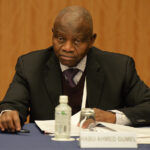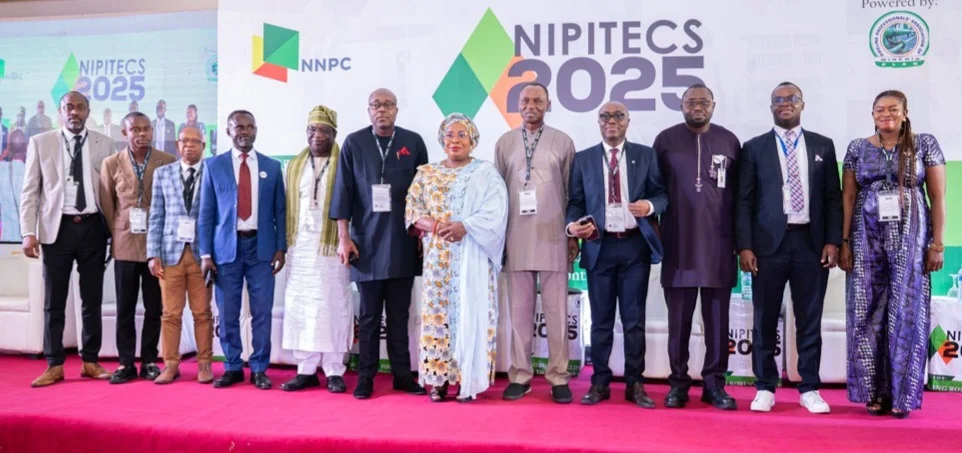By Angela Atabo
The Nigerian Society of Engineers (NSE) has called on engineers to champion Nigeria’s energy future through the development of resilient, innovative, and sustainable pipeline systems.
The President and Chairman-in-Council of NSE, Mrs Margaret Oguntala, made the call at the 2025 Nigerian International Pipeline Technology and Security Conference (NIPITECS), organised by the Pipeline Professional Association of Nigeria (PLAN) in Abuja.
The theme of the conference was “Building Robust Pipeline Systems for the Decade of Gas and Beyond”.
The conference featured stakeholders globally and locally to share expert insights on technical challenges, regulatory frameworks, and innovative solutions for pipeline infrastructure.
Oguntala described the topic as timely and essential, noting that it called for deep reflection and strategic planning on how engineers could shape the future of Nigeria’s energy infrastructure to support not only Nigeria’s growing energy needs but also the demands of global energy markets.
“The next decade represents a critical period for Nigeria to harness the full potential of its gas resources, and robust pipeline systems will be at the heart of this transformation.
“Pipeline systems are the backbone of the energy sector, ensuring the reliable and safe transportation of gas from production points to end users.
“These systems enable economic development, provide energy security, and support job creation in various sectors.”
Oguntala said Nigeria’s pipeline infrastructure must evolve to meet the growing demand for energy and contribute to global sustainability goals.
She said that Nigerian engineers have been uniquely positioned to lead the development of the next generation of pipeline systems.
“Our role extends far beyond designing and building infrastructure. We must also innovate, ensuring that our pipelines are resilient, sustainable, and capable of adapting to future energy demands.
“This is where our expertise as engineers comes into play. We are the architects of a sustainable energy future.
“The responsibility lies with us to design, construct, and maintain systems that not only deliver gas safely and efficiently but also minimise environmental impacts and integrate seamlessly with emerging energy technologies.”
The NSE president urged engineers to embrace digital revolution in pipeline systems because the integration of advanced technologies like automation, data analytics, and smart monitoring systems is vital in building robust pipelines.
She said such technologies would improve safety, optimise performance, and reduce costs, all of which were critical in the era of gas.
To achieve the vision of a robust pipeline network for the decade of gas and beyond, she urged engineers to focus on several key principles like sustainability by prioritising the environmental impact of pipeline systems.
This, she said, included: minimising carbon emissions, reducing energy consumption, and ensuring the safe management of resources to prevent leaks and spills.
She stressed the need to use advanced materials like robotics and AI-driven systems for monitoring and repair, as well as developing innovative solutions for managing the dynamic and diverse terrains in which pipelines operate.
She said that building robust pipeline systems required collaboration among engineers, policymakers, industry stakeholders, and communities.
The president urged engineers to call for the right policies, regulations, and frameworks to support sustainable pipeline infrastructure and help Nigeria become a global leader in energy.
Oguntala also advised engineers to invest in continuous professional development to stay ahead of the curve in an increasingly complex and fast-evolving industry.
She explained that pipeline systems of the future would require highly skilled professionals capable of navigating technological advancements, regulatory challenges, and environmental concerns.
“As we look toward the decade of gas and beyond, we must recognise that the role of engineers in shaping the future of pipeline systems is critical.
“We are tasked with ensuring that Nigeria’s pipeline infrastructure is not only robust and reliable but also sustainable, innovative, and capable of supporting the energy needs of future generations.”
Earlier, the Chairman of the Board of Trustees of PLAN, Geoff Onuoha, called on engineers and industry experts to strengthen Nigeria’s pipeline infrastructure and uphold global best practices to ensure energy reliability, safety, and sustainability.
Onuoha used the Dangote Refinery as an example of modern engineering excellence, highlighting the massive network of over 100 kilometres of interconnected pipelines that feed crude into and export refined products from the complex.
He explained that the refinery’s operations rely on multiple offshore and onshore pipelines, adding that “yet if even one of the pipelines goes down, the entire refinery would grind to a halt.
“That’s how critical pipeline integrity is to industrial and national stability,” he said.
Onuoha reaffirmed PLAN’s commitment to promoting industry standards, professionalism, and local capacity development in Nigeria’s pipeline sector.
He urged members of the association to continue adhering to safety protocols and international standards, while fostering innovation and knowledge-sharing through conferences, trainings, webinars, and technical symposia. (NAN)(www.nannews.ng)
Edited by Deji Abdulwahab












